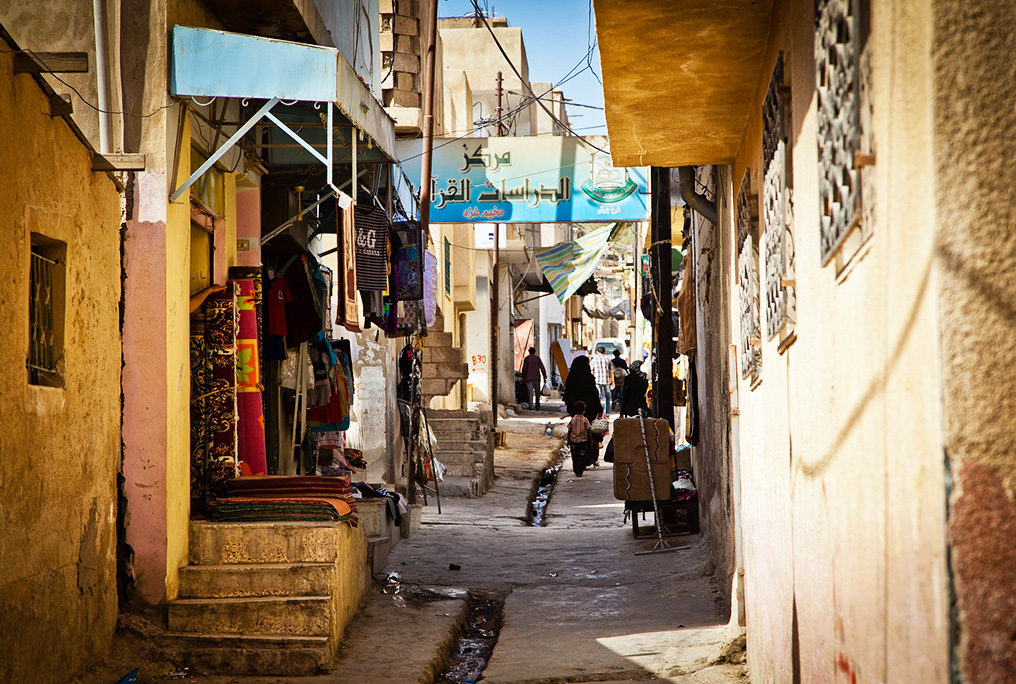 For the second year in a row, Dr Gaja Maestri from Aston University in the UK has joined us to teach her course about Camps, politics, and space: Complexities and ambiguities of segregation. A political sociologist, her reseach addresses questions of migration and civil society orgasniations, with a specific attention to the urban dimension. Her PhD research focused on the residential segregation of asylum seekers and migrants in Rome and Paris, with specific attention to strategies of citizenship claim-making and civil society, Third Sector actors and urban social movements. She is also a member of the French research project MARG-IN (“Marginalization/Inclusion: Regulatory Policies Effects in the Long Run. The Case of Romanian Roma Migrants”) that explore the exclusion and inclusion dynamics of Romania Roma migrants France, Italy and Spain.
For the second year in a row, Dr Gaja Maestri from Aston University in the UK has joined us to teach her course about Camps, politics, and space: Complexities and ambiguities of segregation. A political sociologist, her reseach addresses questions of migration and civil society orgasniations, with a specific attention to the urban dimension. Her PhD research focused on the residential segregation of asylum seekers and migrants in Rome and Paris, with specific attention to strategies of citizenship claim-making and civil society, Third Sector actors and urban social movements. She is also a member of the French research project MARG-IN (“Marginalization/Inclusion: Regulatory Policies Effects in the Long Run. The Case of Romanian Roma Migrants”) that explore the exclusion and inclusion dynamics of Romania Roma migrants France, Italy and Spain.
 This course gives an overview of the theoretical approaches, complexities, and ambiguities characterising camp spaces. It offers an introduction to the complex sociology and geography of ‘camp space’, introducing the main theoretical approaches developed in various social science disciplines as well as considering a series of phenomena linked by segregation.
This course gives an overview of the theoretical approaches, complexities, and ambiguities characterising camp spaces. It offers an introduction to the complex sociology and geography of ‘camp space’, introducing the main theoretical approaches developed in various social science disciplines as well as considering a series of phenomena linked by segregation.
The space of the camp has attracted increasing attention among scholars (including geographers, sociologists, and anthropologists), who have interrogated their diffusion and governance, as well as the everyday practices of the people living in these socio-political spatial formations. In addition to refugee camps and immigration detention centers, new hotspots, asylum seekers centers, and migrant identification facilities are quickly mushrooming as a response to the so-called European ‘migration crisis’. This growth manifests an alarming phenomenon of burgeoning marginalization, and shows how the concept of ‘camp’ is today increasingly crucial to grapple with current social changes in the world’s geographies of exclusion and inclusion.
 Here is a small selection of the readings our students undertake with Gaja Maestri:
Here is a small selection of the readings our students undertake with Gaja Maestri:
Achilli, Luigi, and Lucas Oesch. 2016. « Spaces of ambiguity: Palestinian refugee camps in Jordan ». A contrario 2 (23): 17‑36.
Agier, Michel. 2002. « Between war and city. Towards an urban anthropology of refugee camps ». Ethnography 3 (3): 317–341.
Bulley, Dan. 2014. « Inside the tent: community and government in refugee camps ». Security Dialogue 45 (1): 63‑80.
Hanafi, Sari, and Taylor Long. 2010. « Governance, governmentalities, and the state of exception in the Palestinian refugee camps of Lebanon ». Journal of Refugee Studies 23 (2): 134‑59.
Katz, Irit. 2015a. « From spaces of thanatopolitics to spaces of natality – A commentary on “Geographies of the camp” ». Political Geography 49: 84‑86.
Maestri, Gaja. 2017. « The contentious sovereignties of the camp: Political contention among state and non-state actors in Italian Roma camps ». Political Geography 60: 213‑22.
Martin, Diana. 2015. « From spaces of exception to ‘campscapes’: Palestinian refugee camps and informal settlements in Beirut. » Political Geography 44: 9‑18.
Ramadan, Adam. 2013. « Spatialising the refugee camp ». Transactions of the Institute of British Geographers 38 (1): 65–77.
Sigona, Nando. 2015. « Campzenship: reimagining the camp as a social and political space ». Citizenship Studies 19 (1): 1‑15.
Top Image: Jerash Palestinian Refugee Camp in Jordan by Omar Chatriwala, Creative Commons Licensed
Bottom Images: Talbieh Palestinian Refugee Camp in Jordan by Omar Chatriwala, Creative Commons Licensed

